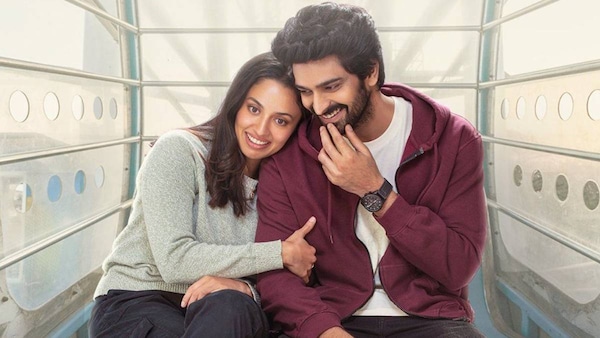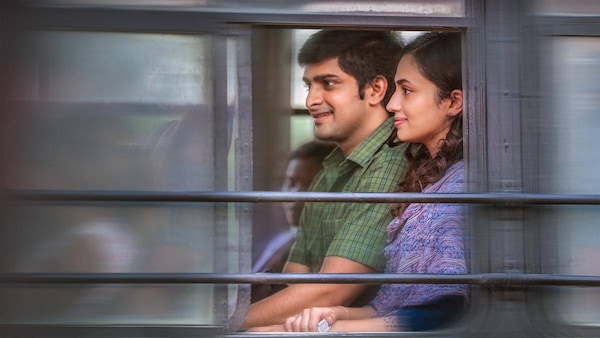Why Phalana Abbayi Phalana Ammayi Feels Like A Throwback To Our Beloved Summer
Phalana Abbayi Phalana Ammayi eschews all the typical tropes of Telugu romantic dramas, and is all the better a film for it, writes Karthik Keramalu.

Last Updated: 03.35 PM, May 09, 2023
This column was originally published as part of our newsletter The Daily Show on May 9, 2023. Subscribe here. (We're awesome about not spamming your inbox!)
***
THE FIRST THOUGHT I had upon watching Srinivas Avasarala’s Phalana Abbayi Phalana Ammayi (PAPA) was that it was a mature drama about a relationship and not a typical love story in which the protagonists follow the typical routines of courtship. It's also not the kind of film I would have watched happily if I were still in my 20s; I would have been a little skeptical about its merits back then. The pacing of a work of fiction has never been a problem for me, but I cant say that I care too much for the pauses either. PAPA, however, is precisely about those pauses. About lingering glances. About the time it takes for the wind to pick up speed before ruining your carefully coiffed hair.
As is the norm for a Telugu movie about a young couple, some of the scenes are set in an engineering college. But what else could they have studied anyway? The movie truly blossoms when the narrative shifts to the UK, for that’s where Anupama (Malvika Nair) and Sanjay (Naga Shaurya) move in order to pursue higher education, and that’s where they come together as lovers — and later, grow apart as exes.
The first hour opens up in delicious ways where Avasarala tracks the milestones reached by his leads through the form of vignettes instead of offering us everyday conversations that oscillate between cutesy and resentful; you never get to witness the complete version of Anupama and Sanjay’s living situation.

It's an interesting approach because the filmmaker is not investing his energy in designing every moment of a relationship. He cuts through the lines of mundanity and directly works his way into the nerves of the big gestures that help us understand how the boundaries of friendship dissolve into a sentiment akin to love. (Even the secondary couple — played by Abhishek Maharshi and Srividya — kickstart their relationship as friends and remain so for a long time before they decide to get married. Therefore, it is not possible to observe their flourishing romance in entirety either.)
Since Avasarala gained a following through the pithy one-liners in his directorial debut, Oohalu Gusagusalade, I thought PAPA would have a similar flavour; it did not. I’m amazed at his confidence, nevertheless, for having chosen to tell a story in a manner that is far from friendly or trendy. I am reminded of the Korean series Our Beloved Summer, which is also narrated in vignettes initially; however, its episodic structure allowed the makers to focus on the lives of the supporting characters too.
I’ll go further and put Our Beloved Summer and PAPA in the same sentence and declare that they’re both cushioned by second chances. Even though Sanjay and Anupama move on to other relationships, they hold themselves back from taking bold steps, such as running away to another country or marrying other people. While Anupama keeps waiting for an opportunity to hear something that will change her mind, Sanjay puts his own future at risk by refusing to create a path for a new relationship.
Of course, it’s pretty common for exes to forgive one another on television — and in real life. And that’s how Our Beloved Summer makes the former lovers realise that they’re meant to experience life's highs and lows together and not separately. What essentially makes PAPA surreal is that the breakup isn’t driven by an external force. The cracks purely occur from within: Sanjay pushes Anupama away so that he can free himself from the shame of being absent during her stay in the hospital.
He couldn’t alleviate her fears by saying she’ll beat cancer. So he stayed away from her instead. Does that make him a domestic monster? Yes, to a degree. How can a person desert their partner at such a difficult time? Though the apology he delivers in the end is quite silly, his reasoning doesn’t sound completely illogical. There are many people who do not have the courage to face loss. There are many people who do not know the right words to use in the presence of people who are sick either. You can easily relate to Sanjay’s inability to wrap his head around these things, but Avasarala doesn’t rely on tears and apologies much. Instead, he uses them as an excuse to get his leads back together. Nothing more, nothing less.
When it comes to modern favorites, like Premam (in Malayalam) and 96 (in Tamil), the question regarding a second chance does not arise at all because the women have moved on. But that’s not the case in Ye Maaya Chesave — Karthik (Naga Chaitanya) and Jessie (Samantha) are very much single when they bump into each other after a gap of three years. Now that’s something that does not happen every other day.
PAPA may not have an afterlife like Oohalu Gusagusalade, but as a film that challenges the tropes associated with Telugu romantic dramas, it's still a pretty neat entry.

